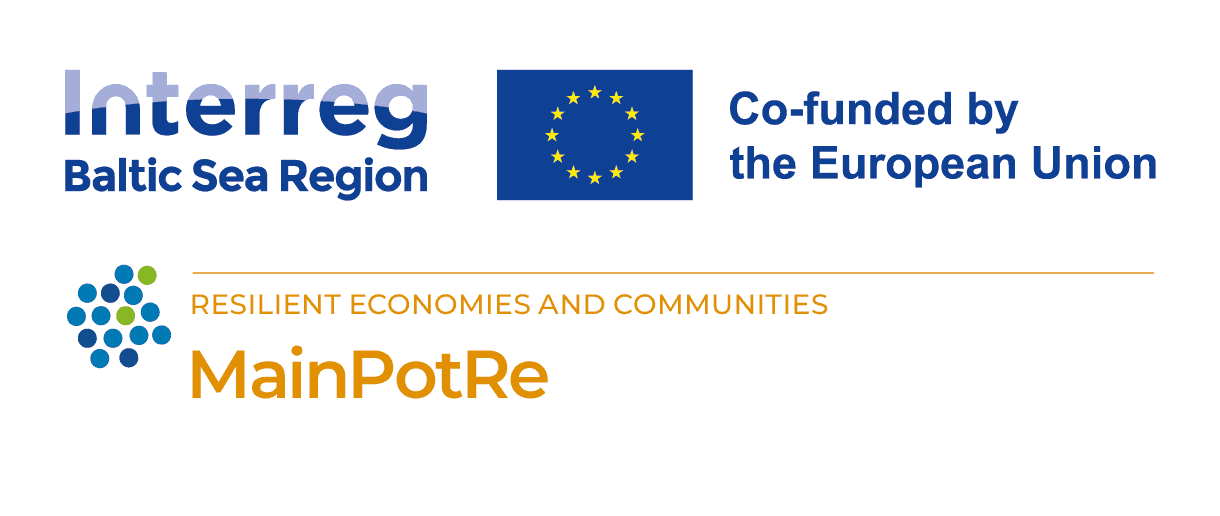Seminar for project partners and target groups
Project: MainPotRe
Physical Meeting
13. June 2025
08:30 - 16:00 (BST)

Explore POLICY BRIEF on Action plan to improve the availability of seed potatoes for local varieties.
Discover our Toolbox for potato plant material deposition in and distribution from gene banks!
This toolbox outlines standardised procedures for depositing and distributing potato plant materials to and from genebanks, with a special focus on hobby growers and gardeners.
You can download the Toolbox for distributing potato plant material from gene banks, available in Estonian and Latvian, and the Toolbox for depositing potato plant material in gene banks, also available in Estonian and Latvian.
Unpredictable crises have underscored the importance of self-sufficiency and resilience, particularly for remote countries such as Latvia, Estonia, and Finland that are susceptible to supply chain disruptions. Cultivating potatoes for self-consumption has played a significant role in ensuring food security during periods of acute challenge. In recent years, food safety has come back on the European policy agenda. Internationally, potatoes are recognized as a key food security crop and a fundamental component of self-sufficiency strategies. Relative to other staple crops, potatoes yield nutritious food rapidly, require less land, and can be cultivated in more challenging climates.
Non-commercial growers primarily faced limited access to small quantities of healthy seed potatoes for locally bred and heritage varieties. Existing legislation and prevailing market conditions limited the use of these local varieties, despite their potential to shorten supply chains and strengthen both food security and sovereignty.
The MainPotRe project addressed these challenges by identifying legislative barriers and formulating an Action Plan to facilitate the registration and use of heritage potato varieties. The project also developed a Toolbox for non-commercial growers, which provides a practical guide to legal procedures for accessing potato material from gene banks and ensuring safe distribution. Furthermore, the project prepared marketing strategies to enhance access to certified and healthy seed potatoes of both local and modern varieties in small quantities.
Throughout the project, awareness-raising activities were conducted in Latvia, Estonia and Finlaned, supported by knowledge exchange with Finnish partners, where heritage potatoes are recognized at the municipal level. Public engagement initiatives, including workshops, media outreach, and community events, highlighted the significance of potatoes in food security and the necessity of healthy planting material to maintain varietal characteristics and yield quality. The project team also provided expert input on the European Union draft regulation concerning plant reproductive material to national authorities and the European Commission.
The development of specific deliverables, including the Toolbox, Action Plan (with policy recommendations), and enhanced marketing approaches, enabled the MainPotRe project to strengthen local capacity for sustaining and expanding potato-growing traditions. These outcomes advanced self-sufficiency, improved food security, preserved cultural and culinary heritage, and fostered stronger community connections throughout the Northern Baltic region. With support from the Interreg Baltic Sea Region Programme 2021–2027, the project contributed to building more resilient economies and societies grounded in local resources and shared expertise
Project: MainPotRe
Physical Meeting
13. June 2025
08:30 - 16:00 (BST)
Project: MainPotRe
Physical Meeting
07. November 2024
10:00 - 16:30 (EET)
Project: MainPotRe
Physical Meeting
01. March 2024
09:30 - 17:00 (EET)
Project: MainPotRe
Physical Meeting
27. February 2024
14:00 - 16:00 (EET)
Project: MainPotRe
Virtual Meeting & Physical Meeting
25. January 2024
10:00 - 17:00 (EET)
Project: MainPotRe
Virtual Meeting & Physical Meeting
03. October 2023
13:30 - 16:00 (EET)